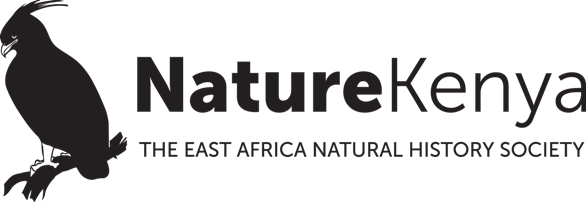This was the bold message that over 140 secondary school students were sending across when they took part in a de-snaring walk at Arabuko-Sokoke Forest. The students, drawn from six secondary schools – Shimo la Tewa High School, Ngerenya Secondary School, Katana Ngala Secondary School, Sokoke Secondary School, Kilifi Township High School and Roka Secondary School – were joined by community members from the area. The de-snaring walk was organized by various stakeholders within Arabuko-Sokoke Forest including Nature Kenya (NK), Friends of Arabuko-Sokoke Forest (FoASF), Wildlife Clubs of Kenya (WCK), Kenya Forest Service (KFS) and Kenya Wildlife Service (KWS).
Arabuko-Sokoke Forest is the last large remnant of the East African coastal forest. The forest covers about 420 km2 and is an important conservation area due to its biodiversity richness. The forest is internationally renowned for its rare bird and mammal species and diversity of habitats, and is home to twenty per cent of the bird species and thirty per cent of the butterfly species found in Kenya. Arabuko-Sokoke Forest is designated as an Important Bird and Biodiversity Area (IBA), and together with Mida Creek, forms part of a UNESCO Biosphere Reserve.
Today, the biodiversity of this unique forest is threatened by a number of illegal activities, including the snaring of antelopes and other mammals for bushmeat. Traditional hunting is no longer sustainable, as mammals found only in coastal forests are threatened with extinction.
So various conservation players recently joined hands in organizing and executing a walk in the forest aimed at removing of snares. This was to send a statement to the poachers that it’s time they stop and keep off the forest. The event also served to collect data on illegal activities taking place within the forest.
The event’s organizers had identified 24 active footpaths (presumed to be used by poachers) traversing an area covering about 12 km2 along the Kararacha-Matsangoni area. The footpaths were labeled and assigned to chosen team leaders.
The walk kicked off at around 7:00 am, with each team leader being paired with a ranger, at least 5 students and community members. Each group walked for about two and a half hours into the forest, covering a distance of about 2 km, looking for snares and any other illegal activities. By midday, all the teams were back to their starting points where they were picked up and dropped at Kararacha Campsite. Each of the 24 groups then presented what they had recorded during the walk. The groups managed to remove 74 snares from the forest.
Logging was identified as the most rampant illegal activity within the forest, with 256 tree stumps being spotted. Pole cutting and charcoal burning were other illegal activities identified. Three people ferrying 28 poles from the forest were spotted during the walk. The three however managed to escape leaving behind their illegal cargo. Bicycle tire marks were recorded, indicating that some poachers use bicycles to ferry their ill-gotten products.
One of the most surprising things noted was that all these incidents of destruction were recorded close to the perimeter fence, raising concerns over what goes on deep into the forest where on several occasions camps of woodcarvers and loggers had been found and destroyed.
Nature Kenya, through funding from NABU (the BirdLife partner in Germany) has continued to support improvement of local capacity through diversification of skills for communities living adjacent to the forest. The NABU funded project contributes to the implementation of the Arabuko-Sokoke Forest Elephant Conservation Action Plan.
“The People Partner with Nature Program” developed by BirdLife Denmark (DOF) together with three BirdLife partners including Nature Kenya, is also underway in Arabuko-Sokoke Forest. The Program’s long-term objective is to reduce the depletion of forested Important Bird and Biodiversity Areas (IBAs) and contribute to the best and most sustainable forest management practices for the benefit of all. The program is funded by DANIDA via the Danish umbrella NGO/training organization, Civil Society in Development (CISU).

Your point of view caught my eye and was very interesting. Thanks. I have a question for you.
Thank you for your feedback. What is your question kindly?
Thanks for sharing. I read many of your blog posts, cool, your blog is very good.
Thank you very much for sharing, I learned a lot from your article. Very cool. Thanks.
Thank you very much for sharing, I learned a lot from your article. Very cool. Thanks.
Thank you very much for sharing, I learned a lot from your article. Very cool. Thanks.
сервисный центр iphone в москве адреса
Thanks for sharing. I read many of your blog posts, cool, your blog is very good.
Your article helped me a lot, is there any more related content? Thanks!
Thank you very much for sharing, I learned a lot from your article. Very cool. Thanks.
Your article helped me a lot, is there any more related content? Thanks!
Thank you very much for sharing, I learned a lot from your article. Very cool. Thanks.
Your point of view caught my eye and was very interesting. Thanks. I have a question for you.
Thank you very much for sharing, I learned a lot from your article. Very cool. Thanks.